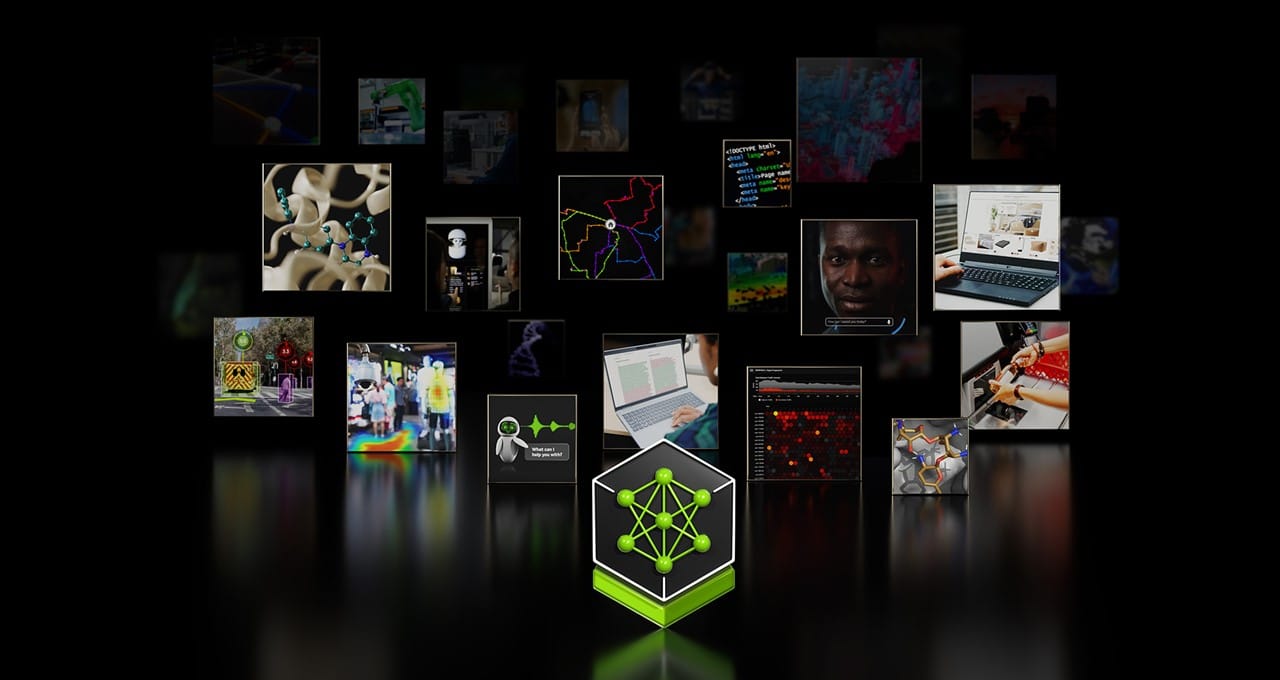Editor’s note: The name of NIM Agent Blueprints was changed to NVIDIA Blueprints in October 2024. All references to the name have been updated in this blog.
The initial wave of generative AI was driven by its use in internet services that showed incredible new possibilities with tools that could help people write, research and imagine faster than ever.
The second wave of generative AI is now here, powered by the availability of advanced open-source foundation models, as well as advancements in agentic AI that are improving efficiency and autonomy of AI workflows. Enterprises across industries can use models like Google Gemma, Llama 3.1 405B, Microsoft Phi, Mixtral and Nemotron to develop their own AI applications to support business growth and boost productivity.
To accelerate business transformation, enterprises need blueprints for canonical generative AI workflows like digital human customer service chatbots, retrieval-augmented generation and drug discovery. While NVIDIA NIM microservices help make these models efficient and accessible for enterprise use, building enterprise generative AI applications is a complex, multistep process.
Launched today, NVIDIA Blueprints include everything an enterprise developer needs to build and deploy customized generative AI applications that make a transformative impact on business objectives.
Blueprints for Data-Driven Enterprise Flywheels
NVIDIA Blueprints are reference AI workflows tailored for specific use cases. They include sample applications built with NVIDIA NIM and partner microservices, reference code, customization documentation and a Helm chart for deployment.
With NVIDIA Blueprints, developers can gain a head start on creating their own applications using NVIDIA’s advanced AI tools and end-to-end development experience for each use case. The blueprints are designed to be modified and enhanced, and allow developers to leverage both information retrieval and agent-based workflows capable of performing complex tasks.
NVIDIA Blueprints also help developers improve their applications throughout the AI lifecycle. As users interact with AI applications, new data is generated. This data can be used to refine and enhance the models in a continuous learning cycle, creating a data-driven generative AI flywheel.
NVIDIA Blueprints help enterprises build their own generative AI flywheels with applications that link models with their data. NVIDIA NeMo facilitates this process, while NVIDIA AI Foundry serves as the production environment for running the flywheel.
The first NVIDIA Blueprints available are:
- digital human for customer service
- generative virtual screening for accelerated drug discovery
- multimodal PDF data extraction for enterprise RAG
ServiceNow is a leader in enterprise AI that has integrated advanced generative AI capabilities into its digital workflow platform. It’s already bringing NIM microservices into its Now Assist AI solutions and working with the technologies featured in the digital human for customer service NIM Blueprint.
“AI is not just a tool, it’s the foundation of a fundamental shift in how companies can better equip employees and serve customers,” said Jon Sigler, senior vice president, Platform and AI at ServiceNow. “Through our collaboration with NVIDIA, we’ve built new generative AI products and features that are driving growth and powering AI transformation for ServiceNow customers.”
More NVIDIA Blueprints are in development for creating generative AI applications for customer service, content generation, software engineering, retail shopping advisors and R&D. NVIDIA plans to introduce new NVIDIA Blueprints monthly.
NVIDIA Ecosystem Supercharges Enterprise Adoption
NVIDIA’s partner ecosystem — including global systems integrators and service delivery partners Accenture, Deloitte, SoftServe, Quantiphi and World Wide Technology — are bringing NVIDIA Blueprints to the world’s enterprises.
NVIDIA Blueprints can be optimized using customer interaction data with tools from NVIDIA’s ecosystem of partners, such as Dataiku and DataRobot for model fine-tuning, governance, and monitoring, deepset, LlamaIndex and Langchain for building workflows, Weights & Biases for generative AI application evaluations, and CrowdStrike, Datadog, Fiddler AI, New Relic and Trend Micro for additional safeguarding. Infrastructure platform providers, including Nutanix, Red Hat and Broadcom, will support NVIDIA Blueprints on their enterprise solutions.
Customers can build and deploy NVIDIA Blueprints on NVIDIA-Certified Systems from manufacturers such as Cisco, Dell Technologies, Hewlett Packard Enterprise and Lenovo, as well as on NVIDIA-accelerated cloud instances from Amazon Web Services, Google Cloud, Microsoft Azure and Oracle Cloud Infrastructure.
To help enterprises put their data to work in generative AI applications, NVIDIA Blueprints can integrate with data and storage platforms from NVIDIA partners, such as Cohesity, Datastax, Dropbox, NetApp and VAST Data.
A Collaborative Future for Developers and Data Scientists
Generative AI is now fostering collaboration between developers and data scientists. Developers use NVIDIA Blueprints as a foundation to build their applications, while data scientists implement the data flywheel to continually improve their custom NIM microservices. As a NIM improves, so do the related applications, creating a cycle of continuous enhancement and data generation.
With NVIDIA Blueprints — and support from NVIDIA’s partners — virtually every enterprise can seamlessly integrate generative AI into their applications to drive efficiency and innovation across industries.
Enterprises can experience NVIDIA Blueprints today.
See notice regarding software product information.
